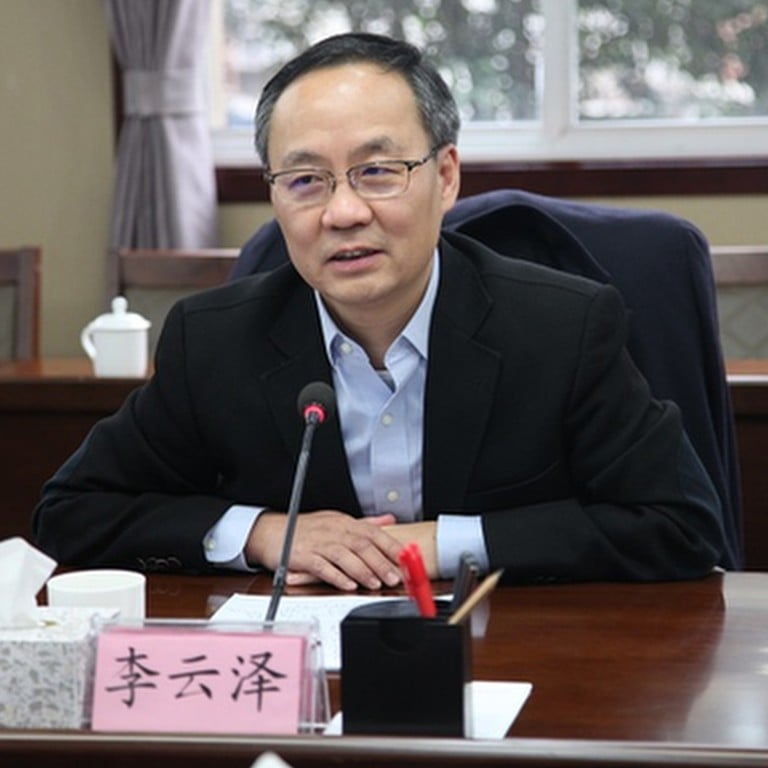
China’s financial overhaul continues with banking veteran Li Yunze named party chief of new regulatory body
- Li Yunze, 52, has been appointed as the party chief of the new National Administration of Financial Regulation (NAFR)
- Beijing set up the new body as part of a sweeping reform plan unveiled at the annual ‘two sessions’ in March amid its shift to prioritise financial stability
China has appointed a banking veteran as the party chief of its new financial regulator, which will oversee 400 trillion yuan (US$58 trillion) of banking and insurance assets amid Beijing’s shift to prioritise financial stability.
Former Industrial and Commercial Bank of China (ICBC) vice-president Li Yunze, 52, will head the new National Administration of Financial Regulation (NAFR), the China Banking and Insurance Regulatory Commission confirmed on Wednesday.
The yet to be launched NAFR will incorporate the China Banking and Insurance Regulatory Commission and absorb the central bank’s supervisory body for financial holding companies and the securities regulator’s investor protection function, according to a draft plan submitted to the National People’s Congress – China’s top legislature – earlier this year.
China responds to US tech curbs, financial risks with broad regulatory shake-up
Li spent more than two decades within China’s state banking system, having started his career at China Construction Bank – one of China’s big four state-owned banks – in 1993.
He was then promoted to vice-president of the ICBC, China’s largest in terms of assets, in 2016.
In 2018, Li succeeded Zhu Hexin – a front runner to become the new governor of the People’s Bank of China – as the vice-governor of the southwestern province of Sichuan.
It remains unclear who will be named as the director of the newly established agency. Previously, Guo Shuqing was both chairman and party chief of the China Banking and Insurance Regulatory Commission.
According to a previously released work schedule, the restructuring of the central authorities at both party and governmental levels is expected to be completed this year.
An anti-corruption drive has also continued to target the financial sectors, with dozens of officials investigated this year.
Restructure puts China’s US$58 trillion in financial assets firmly in party’s purview
According to the budget plan released in late March, the new regulatory agency’s spending on financial regulation will rise by 41 per cent from a year earlier to 606 million yuan (US$87.5 million).
Beijing is racing to inject new momentum into the world’s second-largest economy after it was battered by three years of heavy coronavirus curbs, a protracted property slump and weak external demand for its signature exports.

